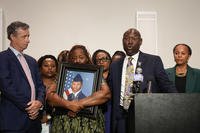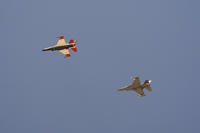As the National Security Council meets to consider US policies and operations to counter piracy, it should consider creation of an operational international center to coordinate the world’s response. Pirates can run rings around the world's navies in part because there is no one place where governments can find and share information about pirates. Call it Blackbeard's Nightmare or the International Counter Piracy and Smuggling Center or whatever nifty acronym international civil servants can conjure up.
But creating one or more centers where countries can share operational information about pirates to coordinate and speed the responses of the world's navies is an idea worth considering, says retired Coast Guard Rear Adm. Ed Gilbert. (As an example of the international scope of the problem, I picked a photo showing Indian Marine commandos capturing suspected Somali pirates.)
"Piracy is not a short term problem limited to just one ocean region off Somalia. Success against it will require lots of international cooperation, plentiful assets, improved procedures and a significantly improved picture in real time of the areas involved," Gilbert said. "Some have suggested convoys and establishment of exclusions zones around the convoys other ways to thwart piracy. The IMO’s establishment of shipping lanes in international waters to enhance safe commerce may provide an illustrative example. For these initiatives to work there will need to be operations centers to maintain situational awareness and to control responses."
It isn't surprising that the idea, hatched in a Friday conversation, should come from a Coast Guard veteran. One agency in the US government knows piracy better than any other: the Coast Guard. The Coasties handle representation of the US on piracy issues at almost all international gatherings. It is the US lead at the International Maritime Organization, which establishes regulations, procedures and programs in many areas of safety, security and environmental protection. The Coast Guard Commandant is our representative to the IMO council.
And the Navy, while it has big ships that can sail the ocean blue, correctly focuses largely on national security threats and ensuring the American presence at sea. But, as Gilbert notes, piracy is "fundamentally a law enforcement issue, not a defense issue and the Coast Guard has broad authorities and experience with this."
So, the Coast Guard is the US government agency with the most knowledge of piracy's legal and operational issues. Their equipment and their legal training -- combined with their extensive experience tracking and often arresting drug lords and their minions throughout the Caribbean and other waters -- makes them, to many minds, the most obvious choice to lead our nation's response.
Gilbert notes that the Coast Guard “is an ideal organization to lead such an effort because of its strong history of building cooperative international programs and its experiences with operating similar operational control centers."
Let's assume Secretary of State Hillary Clinton and National Security Advisor Jim Jones love this idea. Information should be fused and made available to all participating countries as quickly as possible. This would help speed the response of navies to the scene and allow much better analysis of data about pirates and the often related problem of smuggling.
Malta might be a good location for the center. Its history as an historic victim of piracy attacks and its fairly neutral politics speak for it, as well as the fact that many of its naval officers have received US Coast Guard training. Or perhaps Singapore, close to the notorious pirate haven of the Strait of Malacca, would better suit the important Pacific maritime powers of China, Japan and South Korea. "With modern communications, there is flexibility in the location of these centers, which will need to be staffed with an international flavor. Response assets can come from many places, other nations, our DoD and Coast Guard and others," Gilbert argues.
Imagine the feather in the cap for the first commander of the International Counter Piracy Center.








